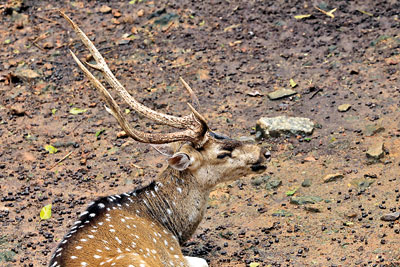News
Starved of care in billion-rupee zoo
Both animals and employees of the Dehiwala Zoo lacked vital facilities with animals not even receiving food at the right time, says the Auditor General’s 2018 Annual Report released this week.
There were more branches than leaves in the foliage provided as feed to some animals. And there was no mechanism to meet the food shortage. While the nutrition provided to elephants needed to be adjusted according to the difference in their heaviness, etc, they were not weighed to gauge the requirement.
 Between 2016 and 2017, 328 animals died of illness. The audit found several instances of negligence towards the health and wellbeing of animals. For instance, quarantine facilities were insufficient and veterinary advice was on occasion not followed when transferring animals from one location to another. Treatments for elephants and tuskers were not carried out continuously and there were insufficient enclosures.
Between 2016 and 2017, 328 animals died of illness. The audit found several instances of negligence towards the health and wellbeing of animals. For instance, quarantine facilities were insufficient and veterinary advice was on occasion not followed when transferring animals from one location to another. Treatments for elephants and tuskers were not carried out continuously and there were insufficient enclosures.
Shelters were not designed to allow animals to follow their natural behaviour and there was just not enough space for some of them. There was inadequate shade management, too. Some animals had no mates. A large number of cages were in a state of decay and were being used with everyday repairs.
But workers are also in dire straits, the audit report observes. Less than three percent of the total income earned by the zoo is spent on employees. And as there were insufficient enclosures for animal treatment, they could be in danger. Not only was there inadequate protection, they did not have suitable insurance coverage or formal training.
While the Department of National Zoological Gardens earned nearly a billion rupees from the display of animals in 2017, just 27 percent of this was spent on food and medicines for the animals, a tiny 2.56 percent on employee welfare and training and 16 percent on construction.
The Auditor General calls for more attention to be paid to animal and employee wellbeing. He says there must be detailed and specific guidelines for this as well as for finding mates for animals, providing training for employees, holding regular medical camps and introducing adequate insurance cover.
The Dehiwala Zoo was established in the early 1920s. It was taken over by the Government in July 1936 and, in 1946, was established as independent public department. In addition to the Dehiwala Zoo, which is one of the oldest zoos in Asia, the Pinnawala Elephant Orphanage, Pinnawala Zoo, Hambantota Safari Park and Gonapola Animal Feed Farm belong to the Department of Zoological Gardens.

